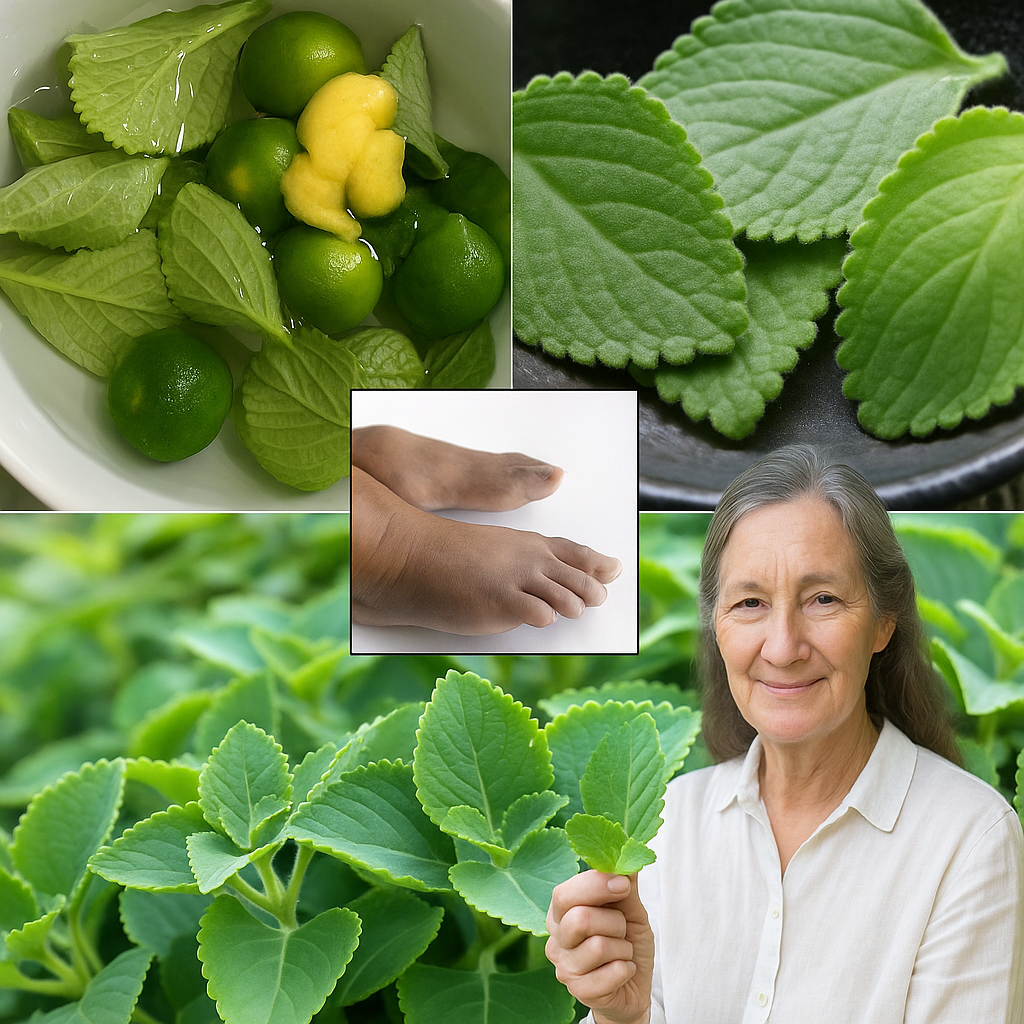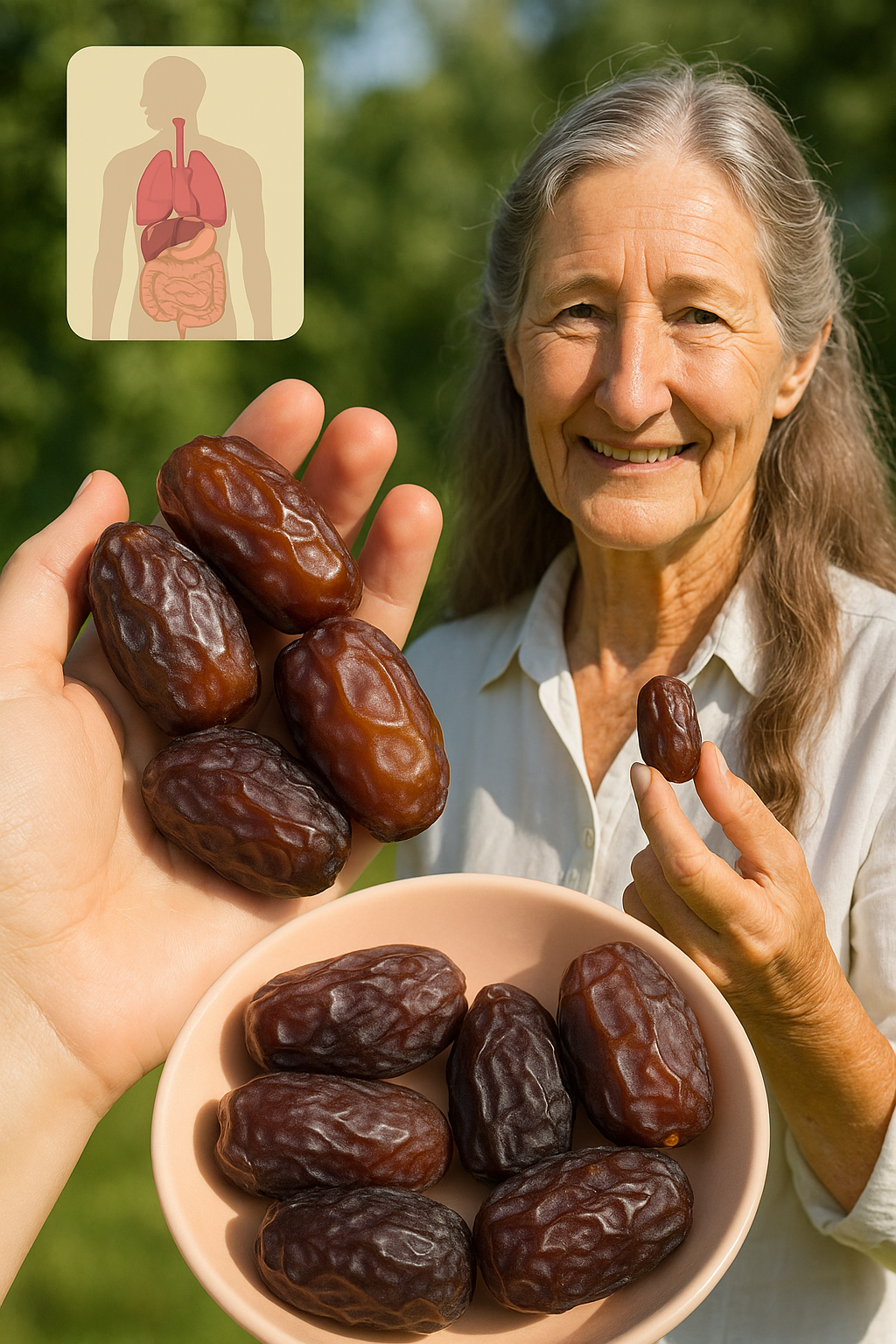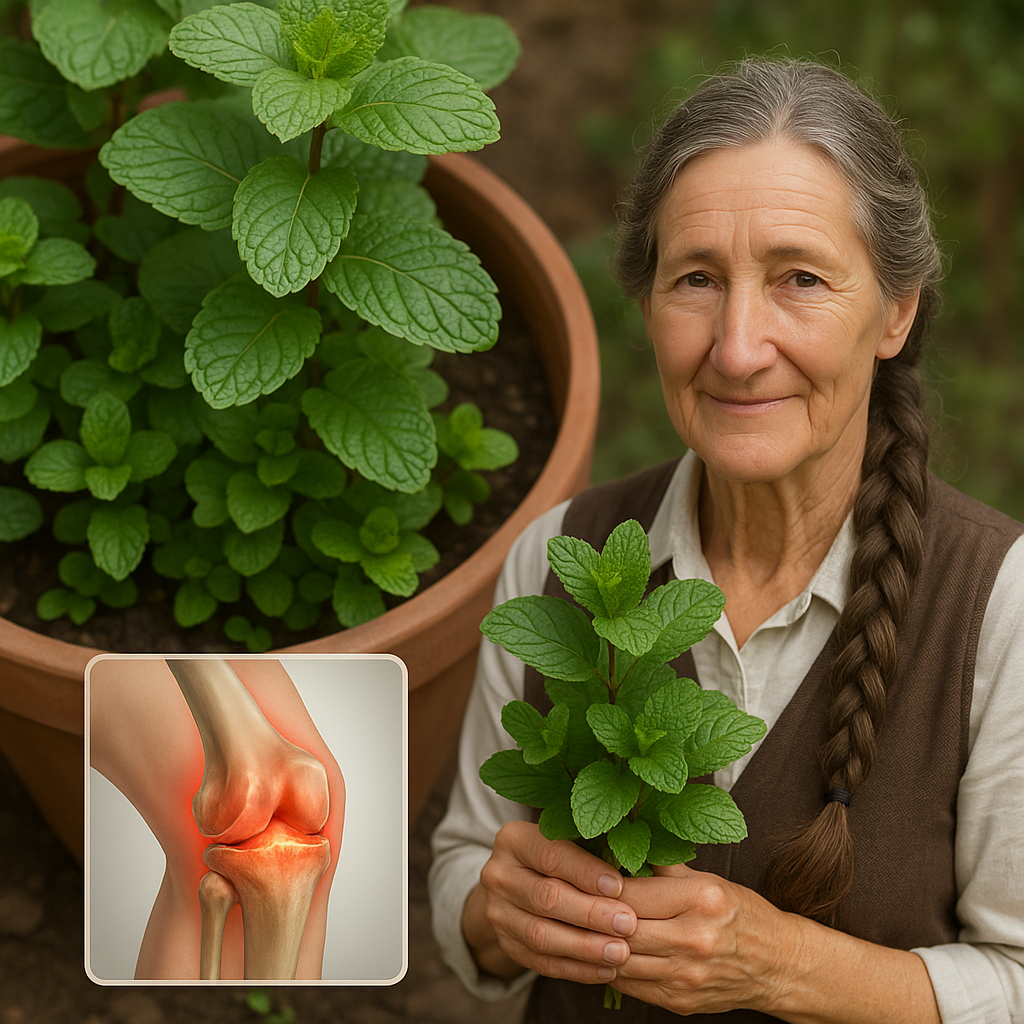🌸 It grows quietly in forgotten gardens, sidewalks, and neglected corners. Most people overlook it. Some even pull it out like an unwanted guest. But this overlooked wild herb, known as Dwarf Mallow or Malva neglecta, is one of nature’s most underrated health allies.
Known in folk traditions as “cheeseweed” due to the shape of its seed pods, Dwarf Mallow is a soft, sprawling plant that has been used for centuries as a healing agent. Today, it’s gaining renewed attention as more people embrace natural wellness and rediscover the potent power of plants that grow right under our feet.
This unassuming green isn’t just a weed—it’s a gentle warrior packed with nutrients, antioxidants, and mucilage that nourish, protect, and heal. Below, we reveal 30 impressive benefits and how to use Dwarf Mallow safely and effectively.
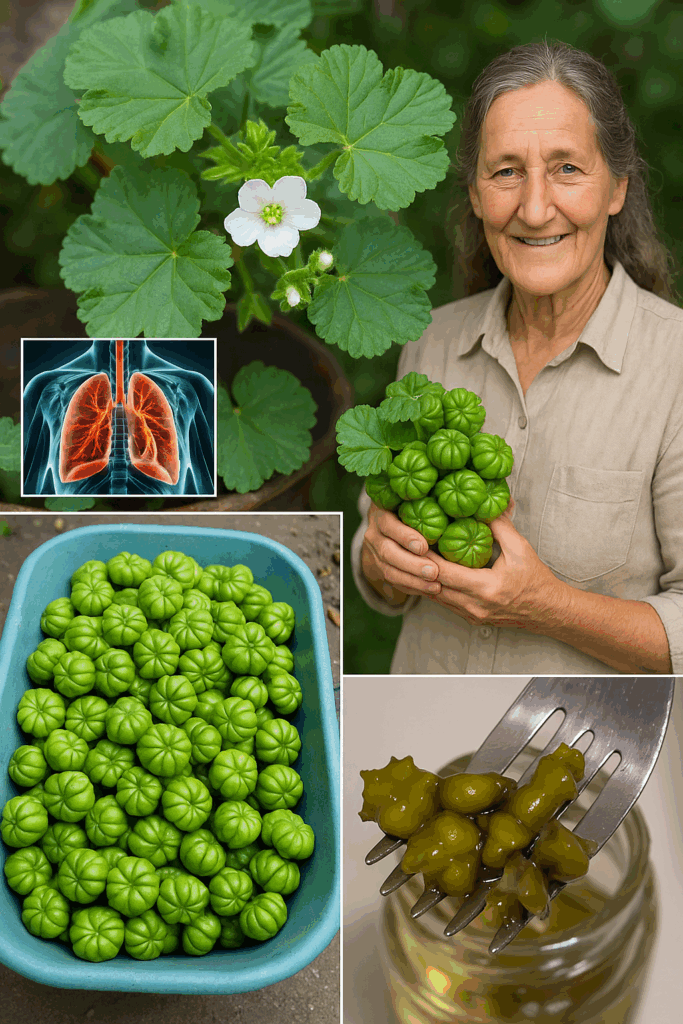
🌱 What Makes Dwarf Mallow So Special?
Dwarf Mallow is a treasure trove of bioactive compounds, including polysaccharides, flavonoids, tannins, and essential vitamins like A, C, and E. Its unique mucilaginous quality gives it soothing, healing properties, especially for the skin, throat, digestive system, and respiratory tract.
Let’s explore why herbalists have turned to this humble herb for generations—and why you should, too.
🌼 30 Evidence-Backed Benefits of Dwarf Mallow
1. Reduces Inflammation Throughout the Body
Its anti-inflammatory compounds calm swelling in joints and muscles, providing natural relief for arthritis, sore muscles, and overuse injuries.
2. Soothes Respiratory Ailments
The mucilage coats and calms irritated throats and bronchial passages, making it effective against coughs, bronchitis, and sore throats.
3. Alleviates Digestive Discomfort
Whether it’s indigestion, constipation, or bloating, the soothing compounds in Dwarf Mallow gently ease gastrointestinal issues.
4. Calms Skin Irritations
Used topically, it relieves rashes, burns, insect bites, and even mild eczema flare-ups.
5. Promotes Wound Healing
Its antimicrobial and anti-inflammatory properties speed up recovery for cuts, scrapes, and minor skin infections.
6. Supports Urinary Tract Health
Traditionally used as a gentle diuretic, it supports kidney and bladder function and may help prevent urinary infections.
7. Relieves Mouth and Throat Irritations
A warm gargle with mallow tea soothes mouth ulcers, sore gums, and throat irritation.
8. Acts as a Gentle Natural Laxative
Its mild, non-habit-forming laxative effect helps relieve occasional constipation without cramping or dependency.
9. Strengthens the Immune System
Antioxidants in the leaves and flowers support your body’s defenses, reducing the frequency of common illnesses.
10. Eases Menstrual Cramps
Drinking mallow tea during your cycle may help relax the uterus and relieve period discomfort.
11. Fights Oxidative Stress
Its high antioxidant content protects cells from damage, reducing your long-term risk of disease and premature aging.
12. Hydrates Dry Skin
The mucilage forms a soothing barrier on the skin, helping lock in moisture and heal dryness or cracking.
13. Slows Signs of Skin Aging
Regular topical use can soften the appearance of fine lines and wrinkles while keeping the skin supple.
14. Calms Allergic Skin Reactions
Whether it’s from plants, dust, or irritation, the anti-inflammatory power helps reduce redness and itching.
15. Fends Off Colds and Flu
Regular use during seasonal changes may lower your chances of getting sick and shorten recovery time.
16. Improves Hair Texture and Strength
As a natural conditioner, mallow’s mucilage hydrates dry hair and reduces breakage and frizz.
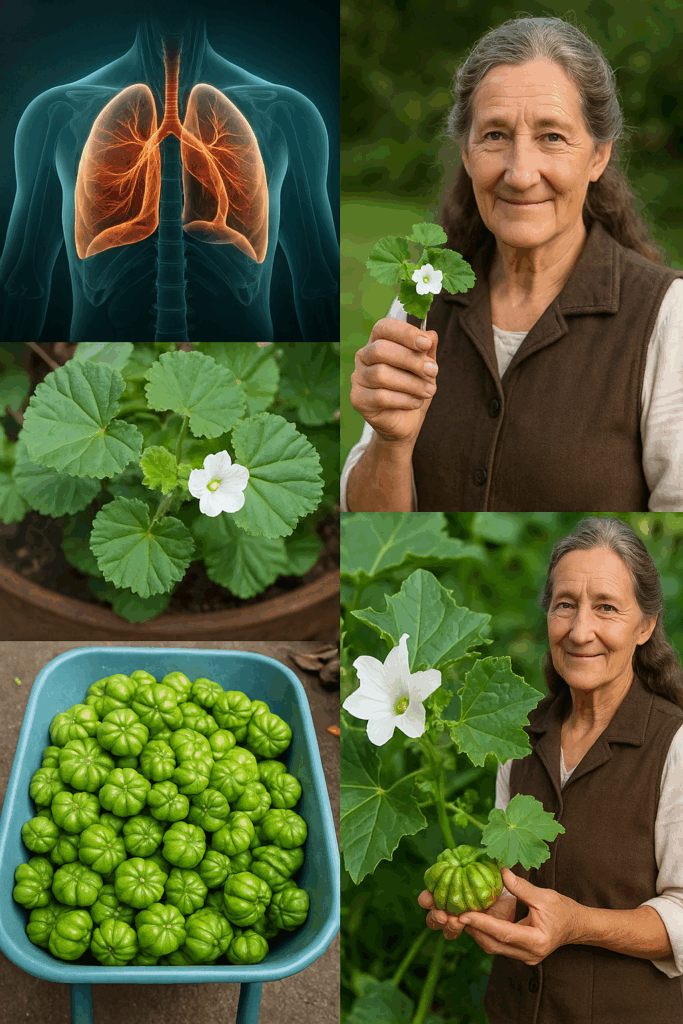
17. Encourages Restful Sleep
Its calming nature makes mallow tea a soothing bedtime ritual for those struggling with tension or insomnia.
18. Provides Relief for Hemorrhoids
Applying a mallow poultice can soothe discomfort, reduce swelling, and support healing in sensitive areas.
19. Enhances Oral Hygiene
Chewing fresh leaves or using mallow-based rinses can reduce gum inflammation and freshen breath.
20. Balances Gut Bacteria
Its prebiotic-like properties may help feed the beneficial bacteria in your intestines, supporting digestive health.
21. Helps Reduce Fever
Mallow tea promotes gentle perspiration, helping to cool the body naturally during low-grade fevers.
22. Soothes Asthma-Related Irritation
Its anti-inflammatory compounds can help calm respiratory inflammation linked to mild asthma.
23. Assists Detoxification
Dwarf Mallow supports liver function, assisting the body in flushing out toxins more efficiently.
24. Promotes Weight Management
Its diuretic and digestive effects help reduce bloating and water retention while supporting healthy elimination.
25. Protects Eye Health
Antioxidants in the plant protect delicate eye tissues from damage and may support long-term vision health.
26. Aids in Managing IBS Symptoms
The mucilage soothes irritated bowels, reducing cramping, gas, and discomfort in irritable bowel syndrome.
27. Builds Respiratory Resilience
Regular use strengthens the lungs and may help reduce the frequency of respiratory infections.
28. Protects the Stomach Lining
It forms a gentle film over the digestive tract, which can help prevent ulcers and reduce acid irritation.
29. Relieves Muscle Soreness
Topical poultices can ease muscle tension and reduce recovery time after physical exertion.
30. Supports Healthy Circulation
Herbal traditions have used Dwarf Mallow to stimulate circulation, which may benefit heart and vessel health.
🍵 How to Use Dwarf Mallow for Wellness
Tea
Steep 1–2 teaspoons of dried or fresh mallow leaves or flowers in hot water for 10–15 minutes. Drink 1–3 times daily for digestive, respiratory, or immune support.
Poultice
Crush fresh leaves and apply directly to affected skin, or wrap in clean cloth as a compress for rashes, burns, or wounds.
Salve or Cream
Infuse mallow into olive or coconut oil and blend with beeswax to create a skin-soothing balm for eczema, dry skin, or minor irritations.
In Your Kitchen
Add tender young leaves to salads, soups, or smoothies for a mild, nutritious boost. It pairs well with lemon, garlic, or mild dressings.
⚠️ A Note on Safety
Dwarf Mallow is generally safe, but as with any herb, individual reactions may vary. Always harvest from clean, chemical-free areas. If you are pregnant, breastfeeding, taking medication, or managing a health condition, consult a healthcare provider before use. Discontinue if any adverse effects occur.
🌿 Nature’s Forgotten Ally
Dwarf Mallow is more than a common weed—it’s a symbol of resilience, quietly offering healing to those who choose to notice. With gentle power and wide-ranging benefits, it invites us to slow down, look closer, and reconnect with the natural remedies that have served humanity for generations.
By integrating Dwarf Mallow into your wellness routine, you can embrace a simpler, more grounded path to health—one cup of tea, one salve, or one bite at a time.
